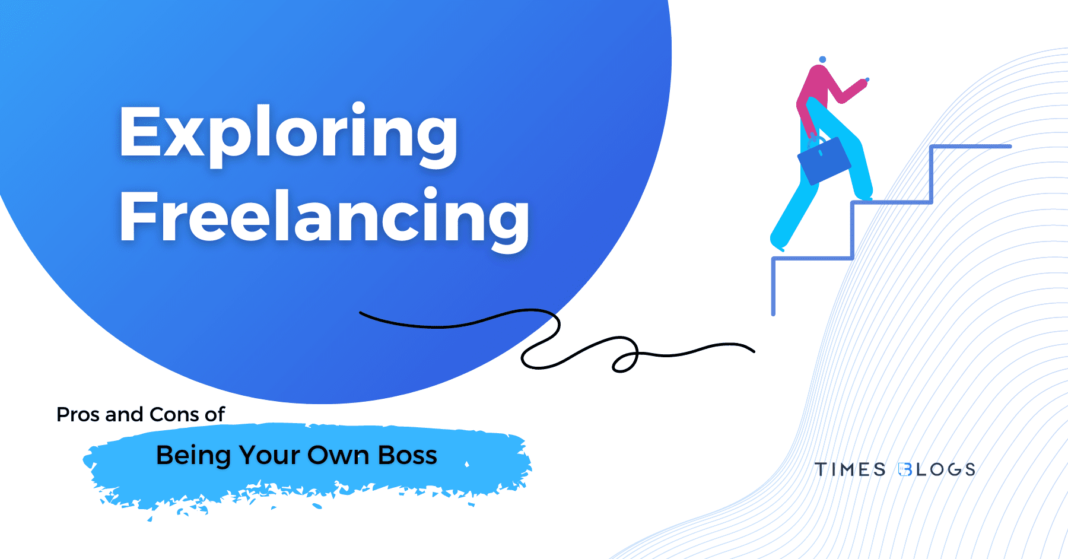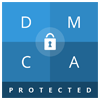Introduction
The world of work is evolving, and with it, the traditional career path is giving way to more flexible, creative, and autonomous ways of earning a living. In the midst of this transformation, freelancing stands out as an increasingly popular option. But what exactly does it mean to be a freelancer, and why has this mode of work captured the imaginations of so many professionals?
Freelancing is more than just a buzzword. It’s the dream of being your own boss, choosing the projects that resonate with you, and crafting a lifestyle that aligns with your personal goals and values. No longer confined to the rigidity of a 9-to-5 job, freelancers enjoy the freedom to shape their careers in ways that were unimaginable just a few decades ago. From writers to web developers, from designers to digital marketers, the freelancing universe is vast and varied.
But is freelancing right for you? The idea of being your own boss is certainly appealing, but it also comes with its own set of challenges and uncertainties. It’s a path that requires not just skill and determination but also a keen understanding of the intricacies of self-employment.
In this comprehensive guide, we’ll explore the fascinating world of freelancing. We’ll delve into the pros and cons of being your own boss, providing insights that will help you decide whether freelancing is the right career choice for you. Whether you’re considering taking the plunge into freelancing or simply curious about what it entails, this article is designed to equip you with the knowledge and perspective you need.
So, let’s embark on this exciting journey and uncover what it really means to be a freelancer in today’s dynamic and ever-changing professional landscape.
Table of Contents
Understanding Freelancing
Definition
Freelancing represents a form of self-employment where individuals offer their specialized skills and services to different clients, often without committing to a long-term contract with any single employer. Unlike traditional full-time employment, freelancers have the autonomy to choose their projects, set their schedules, and often work from any location. It’s about having the freedom to define your career path on your terms.

Types of Freelancing
The world of freelancing is as diverse as the talents that occupy it. Here are some of the most common types of freelancing that have flourished in recent years:
- Writing: From bloggers to technical writers, the field of writing offers many opportunities for freelancers to express themselves creatively and earn a living.
- Design: Graphic designers, illustrators, and UX/UI designers are among those who find freelancing a flexible way to showcase their artistic abilities.
- Programming: Coders and developers can work on a variety of projects, ranging from building websites to developing mobile applications.
- Marketing: Digital marketing experts, SEO specialists, and social media managers often choose freelancing to leverage their skills across multiple industries.
- Photography and Videography: Freelancers in this field capture and create visual content for various clients, ranging from corporations to individual customers.
The list goes on, encompassing everything from consulting to coaching, translating to tutoring. Whatever your expertise, there’s likely a place for you in the freelancing world.
The Rise of the Gig Economy
The growth of the gig economy has significantly contributed to the popularity of freelancing. With the advent of online platforms like Upwork, Fiverr, and Freelancer, connecting with potential clients has never been easier. These platforms have democratized access to freelancing, allowing people from all walks of life to offer their services on a global scale.
Furthermore, the changing attitudes toward work, driven by the desire for flexibility, personal fulfillment, and control over one’s career, have made freelancing an attractive alternative to traditional employment. The gig economy reflects a broader societal shift, where value is increasingly placed on individual agency, creativity, and adaptability.
Pros of Freelancing
Freelancing offers numerous advantages that can align with various personal and professional goals. Here, we explore some of the key benefits that attract many to this independent way of working:
a. Flexibility
One of the most alluring aspects of freelancing is the flexibility it affords. Unlike traditional jobs with fixed hours, freelancers have the power to set their own schedules. Whether you’re a night owl or an early bird, freelancing allows you to work when it suits you best. This flexibility can lead to a more personalized and productive work routine.

b. Freedom to Choose Projects
Freelancing empowers you to choose the projects that excite and motivate you. You have the liberty to pursue work that aligns with your interests, passions, and expertise. This freedom not only enhances job satisfaction but also allows you to build a portfolio that truly reflects your identity as a professional.
c. Potential for Higher Earnings
As a freelancer, you can often set your rates based on your skills, experience, and the value you provide. By choosing projects strategically and managing your time efficiently, there’s potential to earn more than you might in a salaried position. Plus, freelancing can allow you to take on multiple clients, diversifying your income streams.
d. Work-Life Balance
The autonomy inherent in freelancing can lead to a healthier work-life balance. Working from home or choosing co-working spaces, taking breaks when needed, and setting boundaries between work and personal life are all within your control. Freelancers often find that this control helps them create a harmonious blend of professional pursuits and personal well-being.
e. Skill Development
Freelancing is a continuous learning journey. As you take on diverse projects, you’ll encounter new challenges and opportunities that foster skill development. From improving technical abilities to honing communication and business acumen, freelancing can be a fertile ground for personal and professional growth.
Freelancing offers a unique blend of flexibility, freedom, financial potential, balance, and continuous learning. It’s a path that invites you to define success on your terms, fostering a sense of empowerment and fulfillment that can be hard to find in traditional employment settings.
Check our Career Related Articles:
- Top 10 In-Demand Skills for the Future Job Market
- Benefits of continuing education
- The benefits and drawbacks of remote work
Cons of Freelancing
While freelancing offers a host of benefits, it’s essential to recognize the challenges and potential downsides. Understanding these cons will help you make an informed decision about whether freelancing is the right path for you. Let’s explore some of the main concerns:
a. Inconsistent Income
One of the most daunting aspects of freelancing is the inconsistency in income. Unlike a salaried position with a guaranteed paycheck, freelancing income can fluctuate from month to month. Periods of feast may be followed by famine, and this uncertainty requires careful financial planning and budgeting.
b. Lack of Benefits
Traditional employment often comes with perks such as health insurance, retirement plans, and paid leave. Freelancers, on the other hand, must manage and fund these benefits themselves. This lack of structured benefits means additional responsibility and can be a significant consideration for those thinking about going solo.
c. Isolation
Freelancing often means working alone, and this isolation can be a challenge for some. Without daily interaction with colleagues, freelancers may feel disconnected or lonely. Finding networking opportunities or co-working spaces can mitigate this, but it remains a consideration for those who thrive on social interaction.
d. Increased Responsibility
Being your own boss means taking on roles that might have been handled by others in a corporate setting. From marketing and client communication to invoicing and tax compliance, freelancers must juggle many responsibilities. This increased workload requires organizational skills and a willingness to wear many hats.
e. Risk of Non-Payment
Unfortunately, freelancers sometimes face clients who delay or default on payments. Without the protection of a traditional employment contract, chasing unpaid invoices can be time-consuming and stressful. Careful vetting of clients and clear contracts can help, but the risk of non-payment is a real concern in the freelancing world.
Freelancing’s cons can pose significant challenges, and they require careful consideration and planning to navigate. It’s not a career choice to be taken lightly, and understanding these potential drawbacks is essential for anyone considering this path.
Tips for Successful Freelancing
Embracing the world of freelancing is an exciting journey, filled with opportunities for growth, creativity, and autonomy. However, success in freelancing requires more than just expertise in your chosen field. Here are some indispensable tips that can help you thrive as a freelancer:
Building a Portfolio
A well-crafted portfolio is more than just a collection of work samples; it’s a reflection of who you are as a professional. It’s one of the most powerful tools you have to showcase your skills, experience, and unique style to potential clients. Here’s how you can build an impressive portfolio:
- Select Your Best Work: Your portfolio should represent your best work. Choose projects that demonstrate your technical abilities, creativity, problem-solving skills, and attention to detail.
- Include a Variety of Projects: Show your range by including a variety of projects that highlight different skills and styles. If you’re a writer, include different types of writing like blog posts, technical documentation, and creative pieces. If you’re a designer, show different design styles and mediums.
- Tell the Story Behind Each Project: Include a brief description of each project, explaining the problem you were solving, your approach, the tools or techniques you used, and the results achieved. This narrative helps clients understand your thought process and problem-solving abilities.
- Use High-Quality Images and Files: If your portfolio includes visual elements, make sure to use high-quality images that accurately represent your work. If possible, link to live projects so potential clients can see your work in action.
- Include Client Testimonials: If you have positive feedback from previous clients, include their testimonials in your portfolio. These endorsements add credibility and give potential clients a sense of your professionalism and the quality of your work.
- Keep It Updated: Your portfolio should evolve with your career. Regularly update it to include new projects, remove outdated pieces, and reflect your current skills and expertise.
- Make It Easily Accessible: Your portfolio should be easily accessible online, either on your personal website or a professional networking site. Include a link to your portfolio in your email signature, social media profiles, and anywhere else potential clients may find you.
- Reflect Your Personality: Your portfolio is a chance to show potential clients who you are, not just what you can do. Design it in a way that reflects your personality, values, and professional approach.
Building a portfolio is a dynamic and ongoing process. It’s a personal and professional statement that conveys not only what you’ve done but who you are as a freelancer. It’s your introduction to potential clients and a critical step in establishing your freelancing career.
Networking
Connections are vital in the freelancing world. Building a robust network can lead to new opportunities and provide support when facing challenges. Attend industry events, join online forums, collaborate with other freelancers, and don’t be shy to ask satisfied clients for referrals. Networking isn’t just about finding new work; it’s about building relationships that can enrich your freelancing career in countless ways.

Financial Management
Freelancers must be savvy with their finances. Inconsistent income, taxes, and the need to manage benefits like health insurance mean that sound financial planning is essential. Consider working with a financial professional who understands the freelancing landscape, and makes use of tools that can help you track expenses, send invoices, and manage your cash flow.
Setting Clear Goals
Having clear, well-defined goals is crucial for directing your freelancing career. Whether it’s expanding into new markets, growing your income, or achieving a better work-life balance, setting goals provides a roadmap for success. Regularly revisit and adjust your goals to ensure they align with your evolving needs and aspirations.

Conclusion
The exploration of freelancing has revealed a multifaceted and exciting landscape, teeming with opportunities and challenges alike. From the allure of flexibility and the freedom to choose projects to the concerns of inconsistent income and the responsibility of managing various aspects of a business, freelancing is a complex and nuanced career path.
Summary of Pros and Cons
The pros of freelancing, such as flexibility, the freedom to choose projects, potential for higher earnings, work-life balance, and continuous skill development, are compelling. They offer a glimpse into a way of working that prioritizes individual choice, creativity, and self-determination.
However, the cons, including inconsistent income, lack of benefits, isolation, increased responsibility, and the risk of non-payment, are real and significant. They require careful consideration, planning, and a willingness to navigate uncertainties.
Personal Reflection
As we’ve delved into the world of freelancing, it’s clear that this path is not for everyone. It’s a journey filled with both triumphs and trials, one that demands resilience, adaptability, and a clear vision of what you want to achieve.
Encouragement to Explore Freelancing
If the idea of charting your own course, building something that’s uniquely yours, and having the flexibility to shape your professional life resonates with you, then freelancing might be an avenue worth exploring.

It’s an adventure that requires courage, commitment, and a keen understanding of both its rewards and risks. But for those who find alignment with their lifestyle and goals, freelancing can be a fulfilling and empowering way to work.
Equip yourself with knowledge, approach it with an open mind and a willing heart, and you might just discover that freelancing is the path you’ve been seeking.
Remember, the journey of a freelancer is as unique as the individual undertaking it. May yours be filled with creativity, success, and personal fulfillment.




